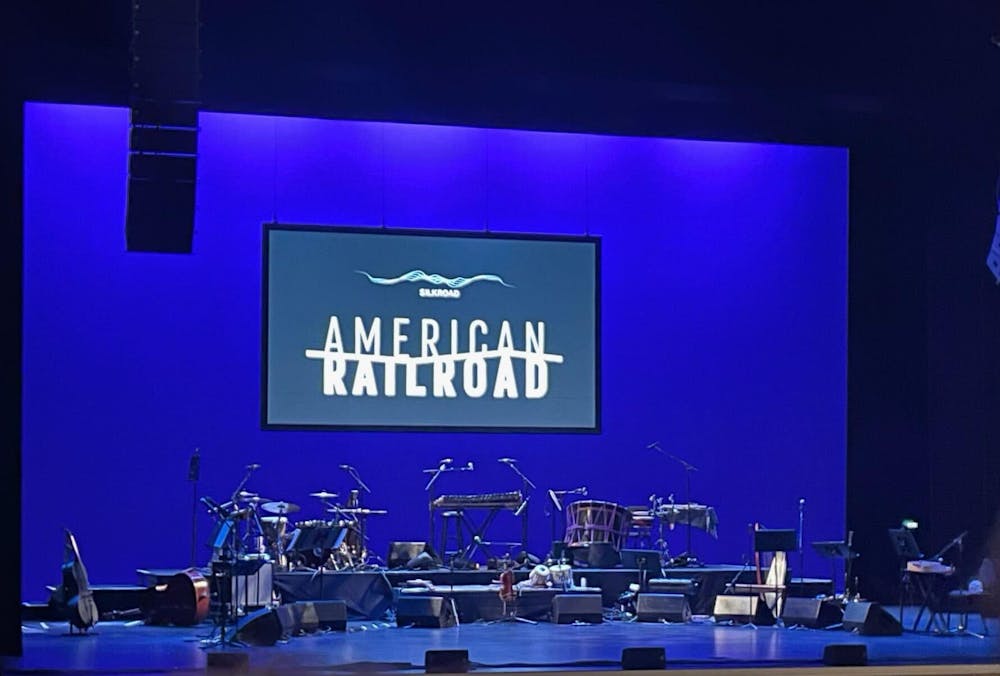The packed auditorium fell silent as the blue stage lights dimmed, revealing the Silkroad Ensemble eager to perform. The Grammy award-winning initiative, led by acclaimed artist Rhiannon Giddens, is renowned for bringing together artists from different global perspectives. Using music as a transformative educational tool, Silkroad tells the stories of marginalized communities through a blend of cross-cultural sounds.
On Wednesday evening, the ensemble performed their newest show “American Railroad” at 7:30 p.m. in Memorial Hall. The ongoing production is meant to illuminate the plights of immigrants working along the Transcontinental Railroad, telling the stories of their struggles in 19th-century America.
The performance opened with the hauntingly expressive “Swannanoa Tunnel,” which heavily incorporated the strumming of the banjo. It told the story of the immense dangers Black laborers faced while constructing the Western North Carolina Railroad outside Asheville — a project that many at the time felt was a harbinger of progress for the area.
“With railroads, it sounds like we're talking about the birth of capitalism, the birth of the railroad and how it happened at the expense of so many lives and marginalized communities,” Layale Chaker, a vocalist and violinist in the ensemble, said.
Dana Mulligan, a UNC student pursuing a master’s degree in folklore studies, said that out of all the pieces, "Swannanoa Tunnel" was the most emotionally charged for her. She added that the piece is more relevant now than ever, taking on a new significance following the devastating hurricane impacting western North Carolina.
Alice Bennett, another show attendee, was drawn to the performance as a fan of Giddens and Pura Fé, who was a vocalist and guitarist featured in the show.
“I really enjoy seeing how different cultural sounds mesh together. And I think often they nestle together in really surprising and beautiful ways," Bennett said.
Other pieces in the production incorporated a diverse range of instruments, such as the Indian tabla played by Sandeep Das and the Celtic harp played by Maeve Gilchrist. This type of blending of traditions is at the heart of Silkroad, and for Chaker, it’s what makes performing with the ensemble so meaningful.
“There’s such acceptance — and also more than acceptance, I would say like curiosity — about the different kinds of musical languages I carry and everybody carries in this ensemble," Chaker said. "The idea that we all come together with those different influences, explore this third way, fourth way, fifth way of doing things while staying true to our multiple identities, not just the traditionally attributed ones."




